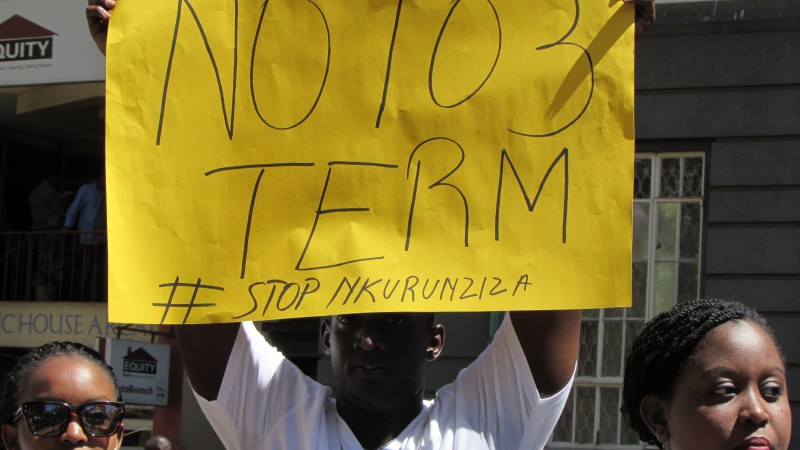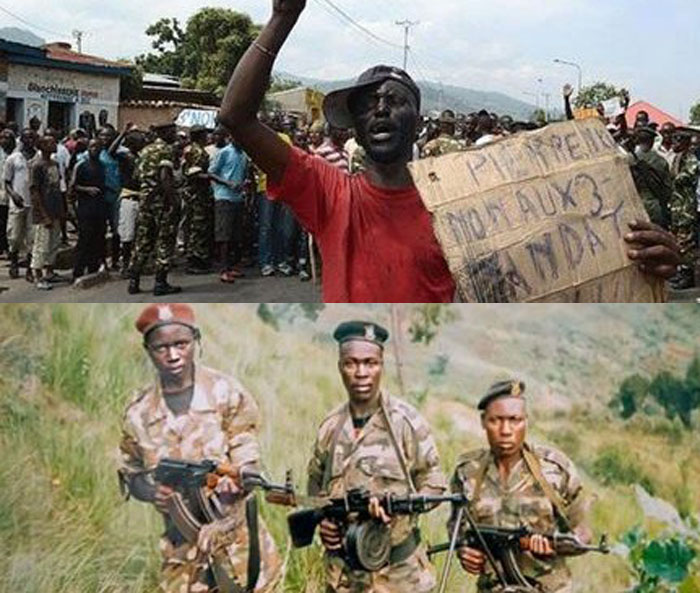
Burundians living in Nairobi, Kenya and friends of Burundi says no to a third term for President Pierre Nkurunziza.
Burundi has been in crisis since April, but the country is still too rarely mentioned in international media. However, in the last two weeks of October, the level of violence and random assassinations have reached proportions that make crisis observers fear the worst.
As a reminder, President Pierre Nkurunziza was reelected in 2010 as the head of the country. The constitution of Burundi forbids presidents from running for a third term. On 25 April 2015, Nkurunziza announced that he would run for a third consecutive term in the 2015 Burundian presidential elections. On 5 May, the Constitutional Court validated his candidacy.
Demonstrations erupted throughout the country to protest this decision. At least 22 demonstrators have died. On 13 May, General Godefroid Niyombare announced that he would take power while President Nkurunziza was visiting Dar-es-Salaam in Tanzania.
On 14 May, the military coup failed in its attempt to take control of the national radio and television station RTNB. That evening, Pierre Nkurunziza's staff announced that Nkurunziza would return to Burundi and retain his position as head of country.
On 21 July, Nkurunziza ran in the elections and won 69.41% of the vote. This election, however, did not stem the tide of the crisis. Thousands of refugees left Burundi for Tanzania fearing armed conflicts to come.

“Pierre, we say no to three-term president.” Image compilation illustrating the crisis in Burundi in 2015
On the Burundian website Les Voix, reporter Ngabire Elyse had a discussion with renowned Burundian political actor Aimé Magera about possible solutions to Burundi's crisis:
On Waza Afrique, the creator of the Facebook group “Emploi à Bujumbura / Jobs in Bujumbura” Landry Sibomana gave his opinion on the crisis that permeates his country:
In effect, thousands of Burundians find themselves on the road fleeing confrontations and more and more frequent witch hunts. This report from Al Jazeera -The Stream explains the resurgence of violence in recent months:
Valentin Vyabagabo, a resident in North Bujumbura, maintains that he has seen bodies floating regularly in the river since September.
In the face of growing ethnic tensions, Roland Rugero of Bujumbura notes that this crisis has multiple factors:

No comments:
Post a Comment